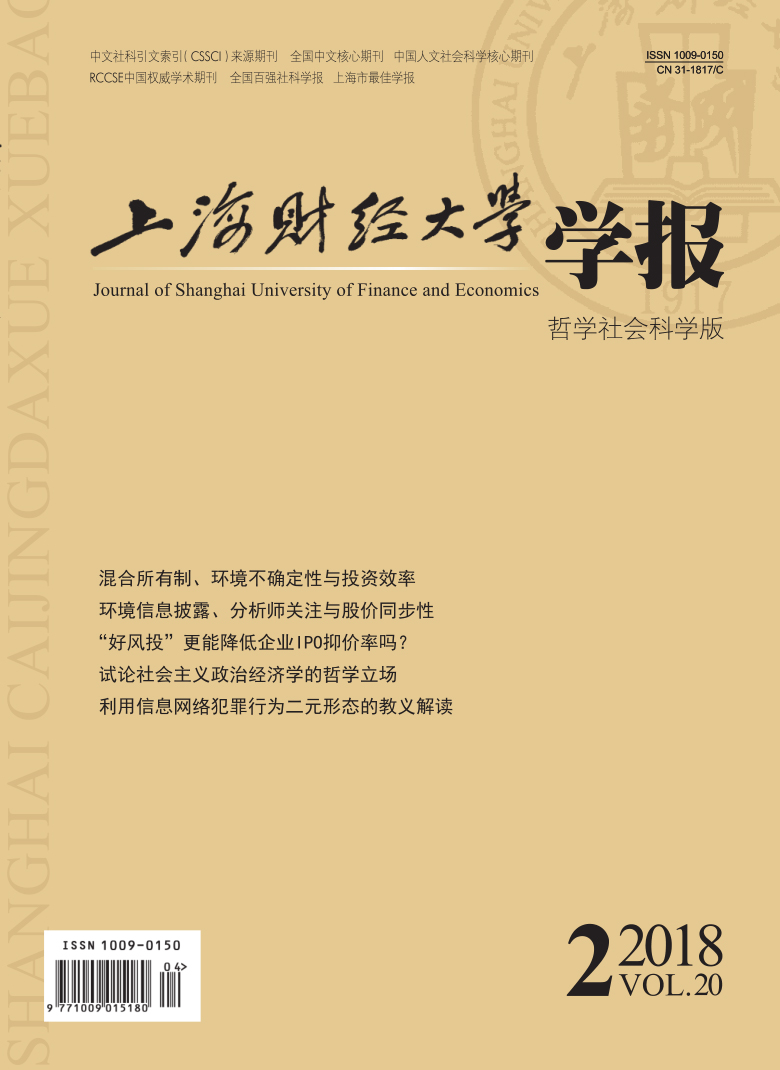Investment efficiency is mainly affected by two factors, namely one is decision-making mistakes resulting from the lack of knowledge and information about the feasibility of the investment projects, and the other is the deviation of investment from the target value resulting from information asymmetry between shareholders and managers. Alchian (1965) pointed out that it is difficult for stated-owned enterprises(SOEs)to effectively solve both types of problems due to the restricted transferability of property rights. Based on the A-share listed SOEs from 2001 to 2015, using the " natural experiment” conditions of " progressive” mixed ownership reform, this paper investigates the property rights specialization transition of SOEs during the last 15 years. We mainly examine the impact of the operating environment uncertainty(OEU)and economic policy uncertainty(EPU)on investment efficiency, and the " correction” effect resulting from the transition of transferability of property rights. The results show that, control investment opportunities, capital costs, corporate risk, and environmental uncertainty reduce the investment efficiency of SOEs, exacerbating over-investment or under-investment. Specifically speaking, on the one hand, when the enterprises are faced with the greater degree of environmental uncertainty, over-investment level is higher; on the other hand, the greater the uncertainty of operating environment is, the lower under-investment is, while the greater the uncertainty of economic policy is, the higher under-investment is. Mixed ownership structure can significantly mitigate the above situation, and reduce over-investment or under-investment associated with environmental uncertainty. Further study shows that, the‘correction’ effect is also reflected in mitigating the degree of firm value impairment caused by inefficient investment under uncertainty. In the SOEs with heavy policy burdens before and after the reform, the ‘correction’ effect of mixed ownership structure still exists, but is weaker than that the one in the SOEs with less policy burdens. Furthermore, the worse the regional environment of property protection is, the more significant the ‘correction’ effect of the mixed ownership arrangement is. Overall, this paper shows that, as a deepening reform, apart from divesting the policy burdens, the comparative advantage of specialization brought by the property rights reform can also help to suppress the inefficient investment behavior under the dual expectation of the real option theory and the agent theory, and enhance the firm value.
 / Journals / Journal of Shanghai University of Finance and Economics
/ Journals / Journal of Shanghai University of Finance and EconomicsJournal of Shanghai University of Finance and Economics
LiuYuanchun, Editor-in-Chief
ZhengChunrong, Vice Executive Editor-in-Chief
GuoChanglin YanJinqiang WangWenbin WuWenfang, Vice Editor-in-Chief
Mixed Ownership Structure, Environmental Uncertainty and Investment Efficiency: A Perspective of Specialization of Property Rights
Journal of Shanghai University of Finance and Economics Vol. 20, Issue 02, pp. 4 - 24 (2018) DOI:10.16538/j.cnki.jsufe.2018.02.001
Summary
References
Summary
Cite this article
Yang Zhiqiang, Li Zengquan. Mixed Ownership Structure, Environmental Uncertainty and Investment Efficiency: A Perspective of Specialization of Property Rights[J]. Journal of Shanghai University of Finance and Economics, 2018, 20(2): 4-24.
Export Citations as:
For
ISSUE COVER
RELATED ARTICLES




 8261
8261  10109
10109

